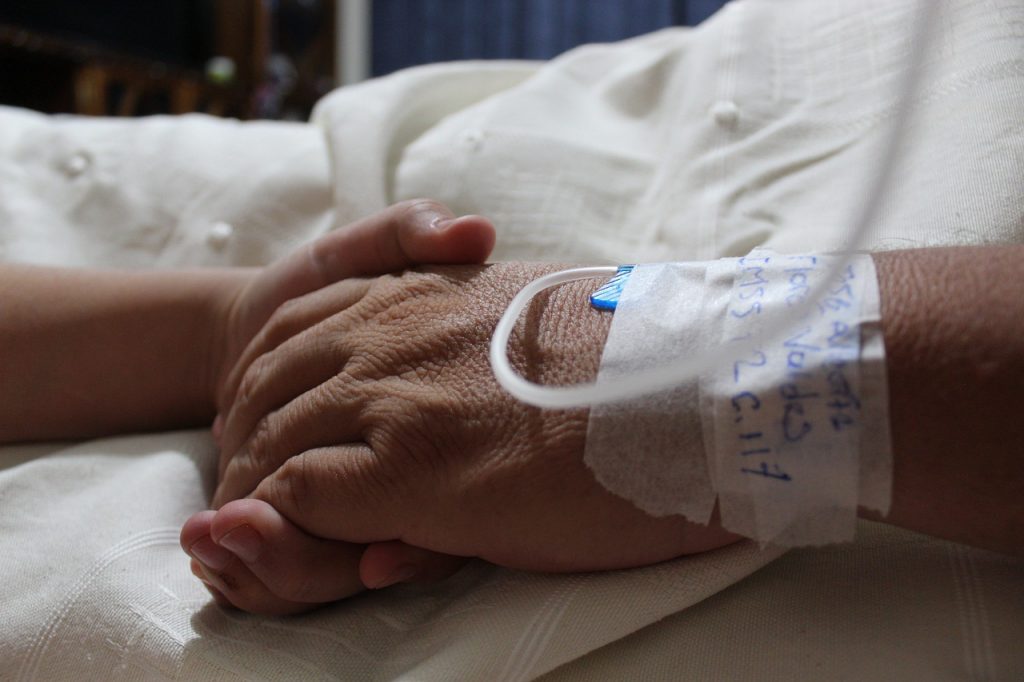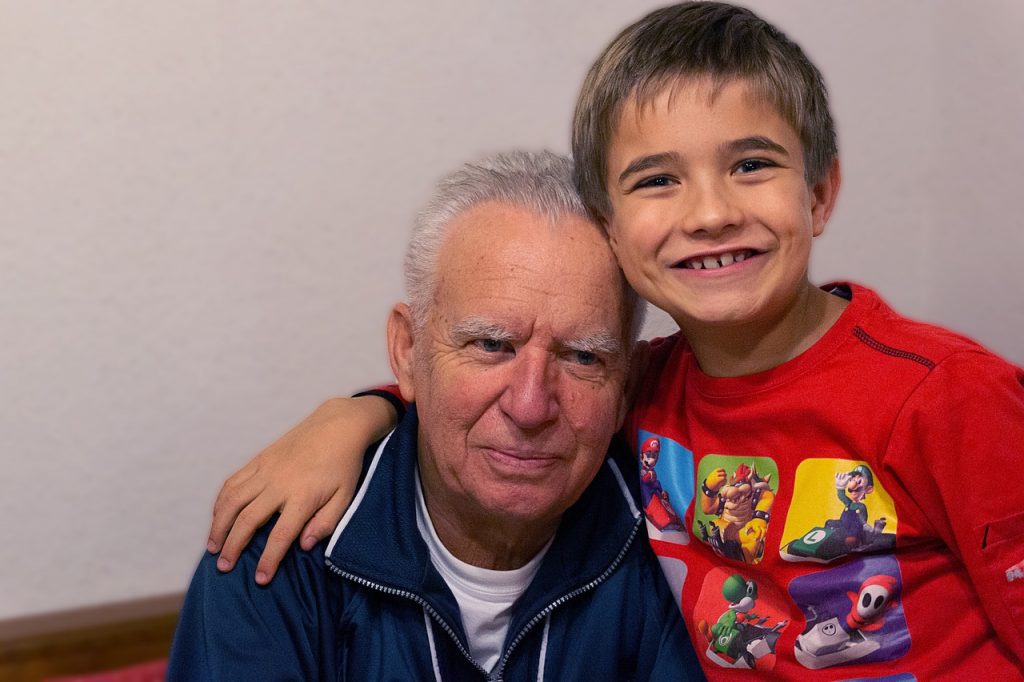Preparing for the “Sandwich Generation”
When I was a kid, my grandmother moved from New York to Kentucky so she would be closer to us. I am sure there were a lot of other reasons why she moved, but I was happy she was close by.
She moved to a senior living facility with her own apartment and car. There were lots of social events and card games to play with a great neighbor. A few years later, we moved to Alabama, and she came, too. When she moved in with us, I was older, and I noticed her mild forgetfulness. I also noticed my mom’s patience with her. Eventually she had to stop driving. I’m sure I was a typical teenager and rolled my eyes or got frustrated, but I genuinely think things went well.
Now that I am a mom and a daughter in the “sandwich generation,” I am sure it was not easy or smooth for my parents or for her. So that’s why, after my mother-in-law had a bad fall last year, I am so glad we have a plan in place.
We are a family lucky to have both sets of grandparents still living. Both are relatively healthy and active, living in their own homes within 10 to 20 miles of us. My husband has a sibling locally, and I am an only child. These steps will be even more important if your family is far away, already living alone, in a long term facility, or has any significant medical issues.
Here are a few things that I have learned that will be helpful in these situations.
Have the Hard Conversations Now
This seems like a pretty obvious point, but people do not like to talk about medical issues. People especially do not want to discuss subjects like resuscitation, level of supportive care, nursing home versus in-home care, or end of life wishes. Then there are the financial aspects of all of those.
But, it is always better to have a plan in place. Find out things like your parents’ wishes for medical care, and yes, even funeral arrangements. Is there a will? What about a living will? An advance directive? A healthcare proxy? What about power of attorney?
Do not wait until an emergency happens to act. What your parents verbally expressed 10 years ago may have changed. It is best to have it legally in writing. You do not want to have emotional and hard conversations with medical staff in the midst of an otherwise trying time.

When my mother-in-law fell, she was hospitalized, and it was clear my in-laws needed to find a smaller, one level home. My husband and his sister were very supportive of each other and would talk or text every night to work out the details. They each had what they needed and could decide who had to do what as the next steps approached. Both of them could focus on either the medical stuff or the house stuff.
One thing that stood out to me is that they each took on the things they felt best equipped to handle and made sure they were all on the same page. I noticed that near constant communication, emotional support, planning, flexibility, and laughter are key!
Get the Papers in Order
Your parents may be extremely tech savvy, proficient in online banking, organized, and meticulous. Good for you (and me, thanks, Mom and Dad)! Or they could be like my in-laws without even an email address. The last time they purchased a house was 30 years ago when everything was done on paper and in person. That’s fine, too, as long as you have the proper documents.
In our case, it was a huge help that my husband was the power of attorney so he could help with all the paperwork when they sold their house and purchased a new one in the middle of the pandemic. He was able to handle nearly everything virtually and ended with a “drive through” closing. It will take just a few more steps to get their documents, but be sure you get it all in order.
Are you listed on the safe deposit box, do you know passwords, and do you know where important papers are kept? Do you have copies of papers, keys, and utility information? Also, once you get the documents, remember where you put them! Have a folder and store them in a safe place. The more you can discuss ahead of time, the better. When emotions, fear, uncertainty, or even strained relationships come into play, it will be important to have at least the basic legal papers in place.
Plan, Plan, Plan
Do not wait for a fall, car accident, or medical emergency to happen! Medical emergencies are just that. A fall or a car accident is hard at 30, but imagine it at 80. Is their home handicap accessible or could a wheelchair or other equipment fit through the doors, down hallways, or in the bathroom? Would an outdoor ramp need to be built? And what if, like my grandmother, it is time to stop driving?
Have the names and numbers of their doctors, neighbors, and friends. Keep a copy of their medications. Also ask to be listed to be allowed to receive their medical information. If possible, know their basic insurance benefits. A lot of Medicare plans are different and cover things differently. It may not change a thing, but it is good to know so they don’t get a surprise bill. Have a plan for whether you will need a sitter after a hospitalization or surgery, even if it is temporary.
Sometimes friends and extended family mean well, but your parents may not feel comfortable. They actually may not feel comfortable asking you, their child, for help. Fear of being a burden is real and understandable. Be prepared for that, too. It is hard to ask for help at any age, but I have learned that a loss of control and fear will cause even a wonderful relationship to be strained.
Enlist the Grandkids!
If your family is like mine, it is go, go, go, all the time. That’s when it’s time to get the kids on board! My kids love to help my parents and in-laws with some yardwork and outdoor chores. Teen drivers can drop off meals, run errands, pick up groceries, or give rides to the store or hair appointments. Best of all, they can just visit.

Maybe they can help set up an email account or app. Maybe they can help with a telehealth medical appointment, a Facebook church service, or a family Zoom get together! Those things may not seem like a big deal, but they will feel like they are helping, and it takes just a little of the burden off you. And, of course, it will make the grandparents so very happy.
To learn more, AARP has great resources. For some clarification on advance directives, living wills, and power of attorney, click here.
How about you? Are you part of the sandwich generation, too? Do you have a plan in place with your parents and in-laws? I’d love to hear more about it in the comments below!











